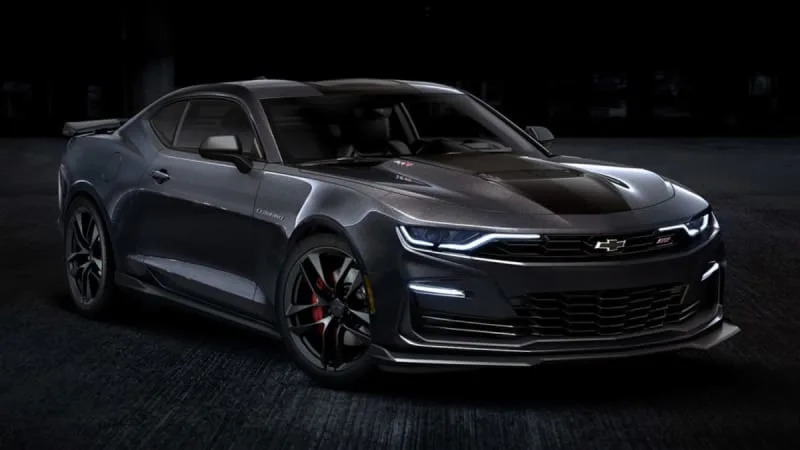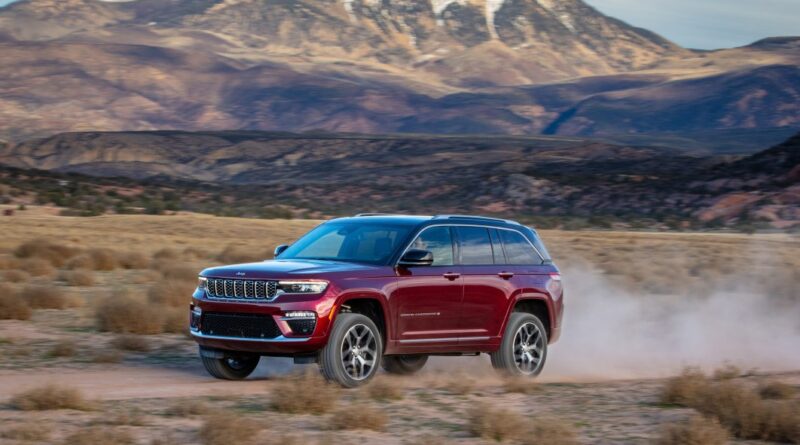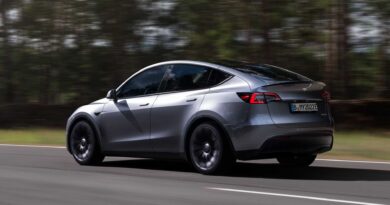Auto sales: Industry records best year since 2019
With 2023 now in the rearview, automakers have set about counting all of their proverbial beans. While full results are still pending for many prominent manufacturers, we already know that 2023 was as close to a “normal” auto sales year as we’ve seen since we closed the books on 2019. The pandemic and ensuing supply-chain mess are now behind us (for the most part, anyway) and the industry’s shift toward electrified options has been abrupt, to say the least. Both will make direct comparisons of sales figures tricky in the years to come, but at least things have stabilized for the time being. Here’s what we expect from the 2023 numbers as they continue to be released, along with what we’re watching in 2024.
2023 Highlights
Electrified vehicles and the The Inflation Reduction Act
Electric and hybrid car adoption increased yet again in 2023, with early estimates pointing to more than a million BEV/HEV/PHEV sales in the United States alone — or close to 10% of the total market. The IRA introduced a new electrified vehicle tax credit structure that threw existing sales narratives for a loop. For the first time, it heavily incentivized customers to buy EVs built by (or with parts from) American manufacturers. We expect to see the influence from this in the final 2023 sales figures, and it’ll all get thrown for a loop again for 2024, which is subject to a new eligibility list.
Normal inventory and the return of discounts
2023 brought the concept of new-car inventory back in a big way. While some automakers were able to stock their lots to a degree, 2023 was the first time we saw consistent inventory at dealers nationwide since the pandemic started in 2020. And while prices will never truly “come back down” to where they were in 2019, transaction prices have largely stabilized and automakers are announcing fewer and smaller increases to their MSRPs and incentives have returned, both on gasoline vehicles and EVs.
Stabilization of the high-end and EV markets
With expensive credit comes reduced speculation, and while that may be good news for enthusiast buyers who’ve been scrimping and saving for their dream retirement cars, it’s bad news for automakers whose dealers were raking in money hand over fist on high-end halo models. With a stable market comes the return of the big “D” — depreciation. That concept has been largely absent from any discussion of the premium car market in recent years, but with supply increasing and demand stagnating, there’s only one direction for values to go: down. The rapid devaluation of used luxury cars returned with a vengeance in 2023 and some early adopters of luxury EVs learned the hard way that there are no guarantees in the resale market. This is broadly good news for shoppers, though, as markups on electric cars should largely be a thing of the past.
GM and Tesla join the full-size electric pickup segment
Chevrolet officially delivered 461 Silverado EVs in 2023 and Tesla delivered, well, a non-zero number of Cybertrucks. They join the Ford F-150 Lightning, Rivian R1T and arguably the Hummer EV to form the current crop of full-size electric pickups. They vary in capability and intended mission and arguably represent one of the most diversified segments in the entire industry.

What to watch in 2024
Trucks
Yep, America remains truck-crazy. While Ford hasn’t released its full 2023 sales results, it did rush to the mic the instant its accountants confirmed that the F-Series remains the best-selling nameplate in the United States with more than 700,000 sold. But big trucks aren’t necessarily the big story. The midsize segment has been selling well, and between the petite Ford Maverick, oddball Hyundai Santa Cruz and some as-yet-unnamed newcomers we expect to learn more about in 2024, there’s a pickup for virtually any buyer in the marketplace. We expect more big wins for small trucks in 2024.
Sedans
It’s a short list and it’s getting shorter. While things aren’t quite as bleak for sedan fans as they are for those who worship at the true altar of automotive ingenuity, it would seem shortsighted to expect a turn-around in 2024. Hopefully we won’t lose too many more beloved nameplates.
Bronco vs. Wrangler
The rivalry isn’t new, but even footing certainly is. With the supply chain now more-or-less cooperating, we may finally be able to take this seriously. And who knows, maybe we’ll invite the new Toyota Land Cruiser to play when the time is right?
Super-SUVs
Whether you prefer them electrified or with a good, old-fashioned V8, these expensive and insanely quick (in a straight line, anyway) machines captivated American buyers in 2022 and 2023; with the Hummer EV SUV joining the field this year, will demand remain high?
Luxury
The mainstream luxury segment is always a dogfight, but with their varied approaches to electrification, BMW, Cadillac, Lexus, Mercedes-Benz, Lincoln, Audi, Genesis, Infiniti and Acura are in the midst of reshaping the premium landscape. Who is doing it right? We’ll see what the customers decide.
Electric
2024 is a big year for electrification across multiple segments. We expect to see Ram’s new “unlimited-range” RamCharger (don’t call it a PHEV) and the first meaningful volume of deliveries for some stragglers on GM’s Ultium EV platform. Tesla is also in the midst of overhauling its older models and who knows, maybe we’ll even get some news on the next-gen Roadster? We’ll track what’s hot and what’s not in the EV space.

The Autoblog Miata Index
What is the Autoblog Miata Index? Why, it’s only automotive sales metric that truly matters. That’s right, we’re just counting Miatas. Why? Well, we like them, for starters, and as a metric for how many True Believers™ are out there buying cars, it’s as arbitrarily good (or bad) as anything else. We fully realize that in any given year, absent production or supply issues, we’d likely be served just as well by graphing the average daytime high temperature in the United States. We don’t care. M.I.A.T.A.
8,973 Miatas were sold in 2023. That’s an increase of 45.4% over 2022 — and 15.7% over its total volume from 2019*. It’s official, then. 2023 was a good year.
—
*Why 2019? Normally, we’d compare only to the prior year, but comparing directly to 2022 sales totals paints only a partial picture. 2019 was the last full year of reported sales prior to the supply chain chaos that happened in the wake of Covid, making for a more reliable point of comparison in many instances.




